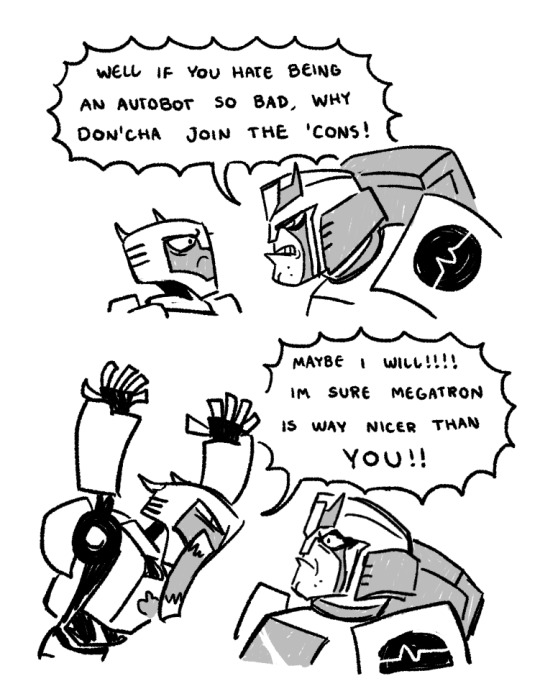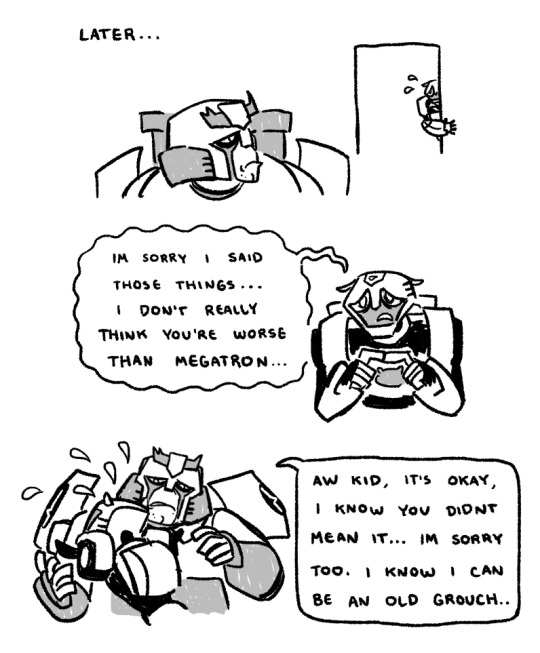#the problem of evil
Explore tagged Tumblr posts
Text
Suffering is not What You Think

(The Penitent Magdalene)
So often you hear, when people leave their churches, their gripes surround suffering. Why would God allow suffering? Why would God allow babies to be murdered and die of cancer? Why would He allow war and cannibalism and pedophilia? Why did God allow me to see my mother die? Why did he allow this or that?
What I cannot help but notice is that the people saying this are never talking about their own suffering.
"Why does God allow war?" said a cowardly young man who has never seen bloodshed. "Why does God allow cancer?" said a woman who is perfectly healthy. "Why does God allow abuse?" said a man who had the privilege of watching the sex abuse crisis of the RCC play out on the TV screen and not in the sacristy. "Why did God allow my mother do die?" said a daughter who is still alive.
We may mourn, and we ought to mourn, the sorrows and the fallenness of this world, but witnessing suffering is not the same as suffering.

(Just Take Them and Leave Me Alone)
This was never more clear to me than when I spent a summer arguing with my anti-natalist, atheist sister. She would spend hours berating my poor mother and father for the heinous crime of having children. During one of these spats, my sister turned to me and said, "How can you support natalism?" which she said like a slur, "your grandmother abused you from the moment you were born."
Now, this is true. Truer than she knew, or, if I have it my way, will ever know. My grandmother (who was my and my sister's primary caregiver) always despised me because I was born with a deformity. Her hatred only intensified when my sister was born. My sister was, in her eyes, perfect. As a child, my sister would ask for me to be abused in front of her, for her amusement, by my grandmother.
My sister witnessed plenty of my suffering, but she experienced not an iota of it. And yet, she used my suffering as a way to say that all of human life is suffering. She used it to discredit the worth of all human life.

(Ophelia)
I find this is always the case. When I was an atheist, I was confused by people who brought up the "problem of suffering". I never viewed my suffering as something that made my life worse. Even as an atheist and a child, I saw clearly how the suffering I experienced and was experiencing was driving me toward a larger purpose. This pattern of thought followed me into the sexual abuse I experienced in middle school and into my conversion.
My atheist associates, whose suffering I know well, likewise never cite their suffering as a reason for their disbelief. When you really get down to it, "God is a big meanie" is not a reason to reject His existence, say these associates of mine.
It is only being a witness to suffering-- usually an impotent witness-- that causes this specific kind of apostasy. Even if my sister had stopped encouraging it, I still would have been abused. Her behavior would have made little difference. It is the same for the sufferings I listed earlier. Regardless of what we tell ourselves, no boycotting, no Instagram post, and not even tax evasion or immolation will stop the Genocide Israel is purporting against the Palestinians. We, far removed, poor, and powerless foreigners, are impotent. We can do nothing to help someone with a terminal illness not die-- it's terminal. We can do nothing to help the kidnapped children we see on the news, taken from their homes halfway across the country. We cannot bilocate, live forever, or have infinite money.
When these people say, "Why does God allow suffering?" they are actually asking, "Why does God allow my impotence?" The implication is that, of course, they would solve these sufferings if only they were not impotent. Is this the case? I don't know; who am I to judge the heart of another man?
Whatever the case, it is clear to me that witnessing suffering is of some different metaphysical nature than the actual experience of suffering. I've written a little about this privately, so I will get around to expanding upon it in further posts.
#christian#christian blog#christian girl#orthodox christianity#greek orthodox#jesus#orthodox#orthodox christian#orthodox church#orthodoxy#russian orthodox#Antiochian#Christianity#bible#catholic#faith#salvation#atheism#atheist#antinatalism#the problem of evil#the problem of suffering#theology#theological#religious studies#religious trama#religion#catholicism#catholic church#christians
80 notes
·
View notes
Text
It will be chaotic, because I can't force myself to make a structured post about it, I don't know why. Also sorry if my autocorrect does something stupid, I'm writing on the phone.
So, the Legendarium and causality, and good deeds, bad deeds and their results. This is the main topic of this post.
Is this post about the Legendarium? About real life? Both? Well, it surely is about the Legendarium, but not only. It's fuzzy. One of the things I like with tolkien is that such discussions get fuzzy and thinking about the books gives me insights about life.
There is a rule which I try to follow when writing or even planning something more serious (in the Legendarium context, but in general too, unless specifically going for a genre that's different): if a long-term success (in something that matters) is achieved by doing something morally wrong, those conditions must be fulfilled (not necessarily all clearly written out, but I must at least have a vague idea):
1. It could have been achieved in a good way, and it wouldn't be lesser. Or it wasn't really that important. (Because I refuse to accept "necessary evil")
2. Either something bad came out of it, or someone has to put effort into it not happening. I'm not sure how to explain it better (see later about handling other people's bad choices)... Anyway this makes the story feel more satisfying, more interesting.
3. How much of 2 is needed is proportional to how bad the thing was. Also if the character couldn't be expected to know much better, point 2 is less intense, though it's often still more interesting to have it.
I wonder how close to canon is this rule. Anyway I like it. Also, I tend to assume at least 1 when interpreting the canon, which likely influences my opinion about the Feanorians and the whole Silmaril business.
I'm not saying this is a 100% rule in real life, or even a technically 100% rule in te Legendarium, because omniscience is tricky… but it is a good rule in writing, I think, and even more so it definitely is a good rule in approaching decisions. If something can't work in a moral way, it won't work anyway or is not worth it. Nothing really worthy can be permanently lost by making the right choice. And so on.
It seems like there would be a symmetrical rule of good deeds not resulting in bad events but then we have the Children of Hurin. And what did Hurin do wrong? I have no idea.
But then, the Men are generally... And you could also look at Maedhros, but then, the exiled Noldor, and SoF in particular are also, hmm, I think "marred" is the word I should use here.
Still, I really prefer if there is something good coming of from good deeds, even distant and not seen by the person doing the good deeds.
Also, there seems to be is another rule, it's outright said. Things always turn out into a good ending, and you can either go with it or fall under it.
Example: gollum. He could have cooperated and jumped with the Ring willingly. He chose to betray Frodo, fell with the Ring anyway.
You also can, obviously, do a creative mix of going along and falling under. (Must I say: the two oldest Feanorians, it is this obvious?)
And falling under makes things more difficult for everyone, not just the person doing it.
Darn, I made this sound ugly and tyrannical. It's not. But I remember when I would say it is, and I can't explain why it is not. It's kinda like when you do a weird thing with your eye muscles and start seeing double. It's just not. I just can't explain it in a way this deserves. My apologies.
Anyway, bad choices make things difficult for everyone. Because we are connected to each other. I've already made a post about it long time ago, but generally...
Maybe if Saruman wasn't such a jerk weed have a Sauron redemption. (Maybe, it's always a maybe)
Maybe if Maglor didn't take pity on the twins, Númenor would fall much earlier and Sauron would be more successful. And so on and do forth.
It's always a maybe, and nobody determines anybody else's choices, but still, we do impact each other. It's hard to think about, because it's over if the places where a) it's worth to try b) there's no guarantee of anything... (Which are most places, I guess). Both on the Silm and in life, people are interconnected. But also everyone is responsible for their decisions.
It's hard to not blame characters (or people) too much. It's hard... In general it's wonderful but difficult, the whole concept.
And another thing tired to this very closely, tied to the interconnectedness (is this a word?) is unearned suffering and Hurin and Nienor and Miriel (both tbh) and Feanor back before he was a jerk and many others.
Sometimes we get the outcome of someone else's bs without even consenting to it. Why? I suppose it's because the connectedness is now important than "not getting random bs thrown in your life". Maybe. Probably. I'm not wise, ok? I'm not sure it's my heart, but something's telling me it's something like this reason.
And what can we do
Argue. Rebel. Just take it. There are many things we can do. I'm not going to go on a rant about what Feanor (or Finwe) should have done and so on because I don't want dfw and others to have a bad time listening to me criticizing their guy, and also I wasn't in his position so I shouldn't be ranting. I should go rant at myself or something.
But the things aren't going to solve themselves or disappear. So yes, just taking it is a very noble and beautiful thing to do (and hard as... Idk what's hard. A Silmaril is hard, I guess)
Because it's so very infuriating when someone else's bs lands on your head.
Oh how I wish I could handle it better.
Back to the Legendarium. Someone handling it better generally yields results, see: the Long Peace. And probably many other situations.
And of course there are situations when the bs you have to handle is your own and if you don't handle it, it will fall of everyone else's heads. This doesn't necessarily make it easier to handle. :( Sometimes someone helps, and that's nice.
Yet another question is how realistic a book should be.
Should it portray lots of undeserved suffering, of badly handled undeserved suffering (CoH), because it's part of life? Should it portray hope triumphing against reason (B&L, and remember that Beren was just as much a Man as Turin was), to give people an escape?
I think (maybe it's rather obvious) that we need both, because depending on personality and circumstances, we need both validation and acknowledgement of our pain, and hope that things can be better. Both kinds of stories are necessary.
It may sound untrue, and sometimes I wish I was a kind of person who can live with only hopeful stories, because the day ones are what I need when I'm not doing well— but no. We do need both, at least in terms of "what most of the story consists of". We need ways to express pain without an immediate answer.
It's a sad song.
But we're gonna sing it anyway.
Until we finally get it right and the sad parts start making sense.
And let's not even get into "sad stories where people mess their lives up so much because that's how freedom works, yes, they can do that" because I have absolutely no idea what to say about those.
#silm#silmarillion#tolkien legendarium#the silm#the silmarillion#Tolkien meta#idk how to tag moral philosophy? writing?#rambling#children of hurin#the problem of evil#kind of#many problems#really i have no idea what to tag on this#surprisingly no direct mention of morgoth#which is a rare situation among my posts 🤣#but obviously the whole context#arda marred#and things like that
19 notes
·
View notes
Text




The Problem of Evil by Epicurus (Done To Death) Page Preview
Really makes you think, I should have become a teenage girl.
Find (why) & Replace (don’t)
Find (?) & Replace (.)
God builds one man with the same formula he uses to break ten. No one has the nerve to tell him that he got lucky, he’s God.
I just got off the phone with God, guy’s pissed.
God gives you challenges. When you fail your pride kicks in and carries you out the burning building while trying to tell you about Hanukkah, ‘I still don’t know what you’re talking about dude.’
I heard Heaven got that skee-ball that you don’t even have to pay to play, I’m just hoping that it ain’t only for dead children.
God and I are so close that he lets me call him Yahweh.
http://shenefelts.org
#shenefelts#done to death#find and replace#philosophy#theology#the problem of evil#epicurus#epicurus quotes#epicurus books#comedy#books#manuscript#page preview#publishing#memes
2 notes
·
View notes
Text
An Unusual Response to the Problem of Evil
Again I saw all the oppressions that are done under the sun. And behold, the tears of the oppressed, and they had no one to comfort them! On the side of their oppressors there was power, and there was no one to comfort them. And I thought the dead who are already dead more fortunate than the living who are still alive. But better than both is he who has not yet been and has not seen the evil…
#Apologetics#Arguments for God#atheism#Dostoevsky#Ecclesiastes 4:1-3#faith#skepticism#Suffering#The Brothers Karamazov#the problem of evil
2 notes
·
View notes
Text
Logical Problem of Evil
The logical problemof evil is an a priori, deductive argument in that in begins with an idea of God, and then looks to defend this idea in the face of the observations of evil and suffering. It criticises the Judaeo-Christian God, questioning how an omnipotent, omniscient and omnibenevolent being can coexist with evil and suffering in the world.
It is a view supported by David Hume, but J. L. Mackie is the best known modern proponent of the logic form of this argument, writing “The problem of evil […] is a problem only for someone who believes that there is a God who is both omnipotent and wholly good,” and clarifies it is a logical problem, not a “scientific problem that might be solved by further observations, or a practical problem that might be solved by a decision or an action.”
It sometimes makes reference to the inconsistent triad, an idea from Epicurus, which consists of three premises:
That God is perfectly good.
That God is all-powerful.
That evil and suffering exist.
However, these three things cannot coexist.
If God was perfectly good, he would seek to eliminate evil, as his all-loving nature would not want humans to suffer. If there is a God who is all powerful, we can presume he has the abilities to make any kind of world, or no world at all. He could create a world without evil and suffering, and yet he chose not to, which is inconsistent with the claims he omnibenevolent and omnipotent. If he is truly all-powerful, he would be able to eliminate the evil in the world. Therefore, God’s attributes are mutually exclusive, and He cannot exist, just as a square circle cannot exist. God is logically inconsistent with the existence of evil.
To argue against this, the premises can be broken down. Attacking one premise destroys the entire argument.
Premise 1, that an omnibenevolent God would seek to eliminate evil assumes it is better to have no evil than have evil. Irenaeus, Hick, and Swinburne all argue against this. There could be reasons why God doesn’t seek to eliminate evil, as it is necessary for us to mature and develop a relationship with God. Therefore, it may be more loving to provide us with a ‘vale of soul-making’ rather than a world in which we have little freedom.
Premise 2, that an omnipotent God would have the power to eliminate evil works on the assumption that an omnipotent God can do anything at all – how can He restrict our freedom whilst simultaneously allowing us free will? Richard Swinburne argues that God can do anything that is possible, but allowing human freedom while at the same time not allowing evil is impossible, and a logical contradiction: “The less he allows men to bring about large-scale horrors, the less freedom and responsibility he gives them”. (Could also mention the omnipotence paradox).
Premise 3, that evil exists can also highlight an issue. If evil exists, that is what God wants – it is in His loving plan, and so it could be considered ‘good’. That is what God wants, and because God is omnibenevolent, anything God wants is necessarily good. Also, monists suggest that evil is simply an illusion (as well as Christian Scientists) and Augustine suggests evil is not a entity that exists, rather an absence of good.
#a level revision#a levels#ocr religious studies#ocr rs#religious studies#a level religious studies#philosophy#st augustine#inconsistent triad#epicurus#the inconsistent triad#god#god is evil#the problem of evil#david hume
2 notes
·
View notes
Text
Last year in my classes I got fairly well acquainted with “The Problem of Evil” (“How can we believe in a good and all-powerful God while suffering exists?” — one of the major arguments for atheism) but most of the time the Problems focused on either natural disasters which cause harm to thousands or the atrocities of wars and genocides which seem impossible to reconcile.
But all that remains impersonal to the vast majority of people who have never been in a war zone or natural disaster. Get down to “How can some parents be incapable of properly loving their own children?” and suddenly the contradiction is in your face; it’s a vast plague that resounds through our society on an individual basis. It’s a juxtaposition of what we believe should be vs. what is. You brought me into this world - you damn well sure should love me. But that isn’t always the case.
And Christ on the cross cries out to his Father, “My God, my God, why have you forsaken me?” And the curtain of the Temple is torn in two and the Holies of Holies opened up to all the world. What is going on here? What the hell is going on? Three days later he’s up for some broiled fish; “Have you all heard of eternal life? I’m ascending to my God and your God, my Father and your Father.”
The wounds on his hands and feet are still there yet he lives forever.
4 notes
·
View notes
Text
From Ground Zero: Stories from Gaza
An innovative and informative film on the human condition at its most dire, "From Ground Zero: Stories from Gaza," contains nuggets from theology and political theory that hint at the potential of film to engage viewers as thinkers, for we are all thinkers as well as emotional beings. https://thewordenreport-film.blogspot.com/2025/04/from-ground-zero-stories-from-gaza.html
#Gaza#Israel#human rights#war crimes#crimes against humanity#martyrs#religion#religion in film#political theory#Bentham#Hobbes#Hinduism#brahman#theodicy#the problem of evil#collective justice#justice#psychology#social psychology#Palestinians#military#natural rights
0 notes
Text
Also the problem of Evil never bothered me. I make jokes but God ✨️being like that✨️ is just because death is nothing to an immortal God. My issue is more of the idea that God gets jealous or wrathful. As in He is unsatisfied with the creation He is 100 percent in control over.
"Idolatry makes me sad. :'( Stop feeling sexual attraction. 😔🥺" My brother in You You created the conditions of our life.
#christianity#the problem of evil#When people talk about God I get it but like I wouldn't say any monotheistic religion rn is the correct one
0 notes
Text

#tiktok#fuck trump#fuck republicans#fuck republikkkans#republicans#fuck the republikkkans#republikkkan hypocrisy#republikkkan stupidity#republicans are domestic terrorists#republicans are evil#republicans are garbage#republicans are weird#republicans are the problem#fuck maga#maga morons#maga cult#maga idiots#maga is stupid#maga is a cult#maga insanity#trump's economy#donald trump#fuck donald trump#bernie sanders#fuck the gop#trump administration#president trump
4K notes
·
View notes
Text
...he's gonna have a go at Morgoth making things and hoping Saint Augustine isn't gonna notice.
(from this video) (it makes sense in the context)
#random#silm crack#hilarious#morgoth#the problem of evil#tolkien philosophy#yes the grammar is off but that's how the guy in video said it#it's funnier this way#tolkienology#the problem of orcs
2 notes
·
View notes
Text
"I think this Category of human being is disposable" okay that not only sucks and is fascist but also makes getting you to deem someone to be disposable a simple matter of convincing you they're in The Category regardless of the truth. Also The Category is often misapplied to a vulnerable minority because it makes people like you agree they're disposable.
"Anyone who disagrees with me about The Category of people being disposable is a Category apologist or probably also in The Category themselves" Oh so you're just totally unconcerned with truth or justice or ethics or human rights and just are feeding your bloodlust for the sake of revenge fantasies. got it 👍
#“I've solved it! We just kill all the Bad People so all the Good People can live safe happy undisturbed lives 🥰” That's Fascism.#If your solution to wrongdoing is to just kill evryone who's Too Evil then your only problem with concentration camps is who's in them#“The world would be a better place if *I* was in charge of who lives and who dies.” That's Not Very Fucking Leftist Of You.#Your only problem with the evil empire is that you're not in charge of it. Your politics are a joke and your ethical backbone is liquid.#problemnyatic thoughts
10K notes
·
View notes
Text





UGHGJHTGH THEYRE SO FAMILY TO MEEEE
#transformers animated#tfa#tfa bumblebee#tfa ratchet#ratchet#bumblebee#maccadam#BEE IS SO HARD TO DRAW BUT HES SO CUTEEE 😭😭#tfa bee might be my fav iteration of him hes just so annoying and whiny and its so funny whats his problem#ughhh old man rachet who hates this stupid kid but hes actually lying and he could never hate him and#in my resident evil phase i was shipping everyone with ethan#but in my transformers phase im just giving bumblebee all the parental figures#u get a dad! u get a dad! u get a dad!#I CAST 1 MILLION PARENTS#tfa ships can be cute but i like them all as a big happy family way more im sorry#theyre all best friends and happy and care about each other
7K notes
·
View notes
Text
Philosophy
AS:
ancient philosophical influences
mind, body, soul
arguments based on observation
arguments based on reason
religious experience
the problem of evil
A2:
the nature or attributes of god
#a level religious studies#a level revision#a levels#ocr religious studies#ocr rs#religious studies#ocr religious studies essay#philosophy#ancient philosophical influences#problem of evil#mind body soul#religious experience#arguments based on reason#arguments based on observation#the problem of evil
2 notes
·
View notes
Text


FINALLY got to know minthara... no notes. life of the party
#minthara#baldurs gate 3#bg3#baldurs gate#my art#astarion didnt have a problem with the widow hearts it was just undersalted#i love her so much.... what a character. ride or die and evil thats a perfect soup to me#my comics#(looks up at the clock) GAH AND MERRY CHRISTMAS
8K notes
·
View notes
Text
I mean I get that’s it’s not the only contributing factor, but I’m curious exactly how much of the shelter dog over-population problem is actually due to poor dog ownership/management vs the housing crisis and economical stress. I’d be willing to bet by investing in social programs that give people the resources they need to care for their pets (cough cough affordable and free housing cough cough) that the amount of pets in shelters would dramatically drop. We can all sit here pointing fingers and screaming at each other until we are blue in the face, but if the owners basic needs are not being met, how can we hold them to a basic standard for their pets?
#I know I’m probably preaching to the choir#but truly it feels like we got one group of ppl being like#adopt don’t shop! people breeding animals are evil!#and the other side being like#alll shelter dogs are inherently genetic disasters that will always have behavior issues responsible breeding is the answer#or the problem is uneducated owners#idk guys we r all ripping ourselves apart when the real enemy#*turn and looks directly into the camera*#is our government#USA centric post
7K notes
·
View notes
Video
youtube
Why Does GOD Allow EVIL & Suffering? (important answer)
0 notes